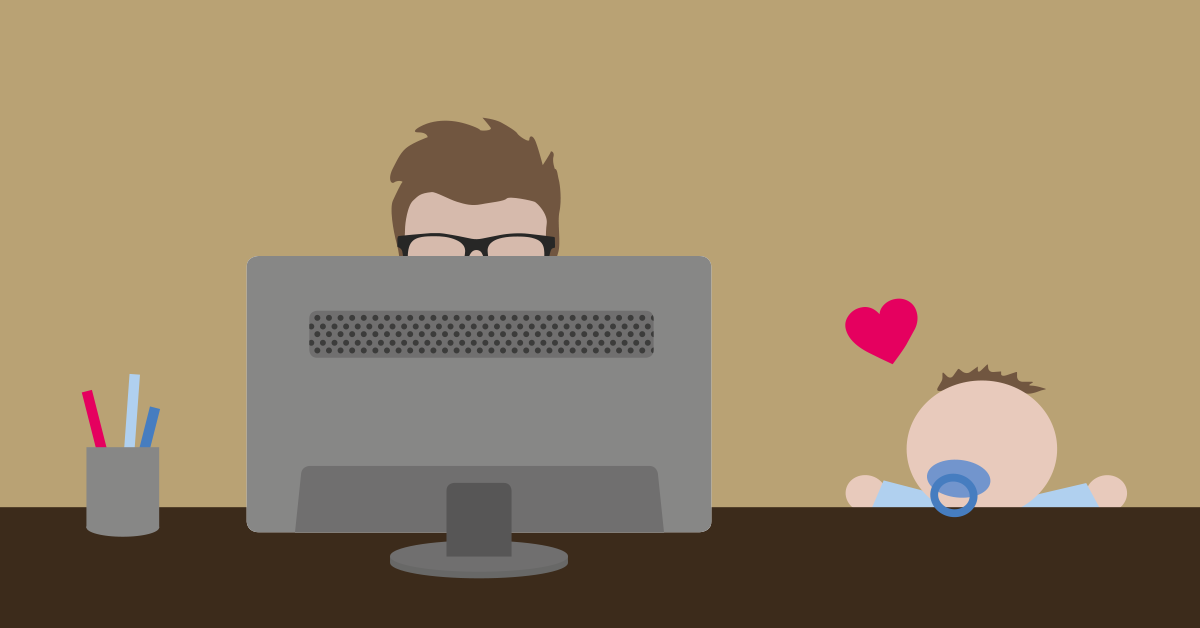A well-worn phrase has been doing the rounds for a few years:
"Work should be something you do, not somewhere you go."
Allowing employees to work from home (WFH) is a measure now being undertaken by most companies, at least to some degree. Technology allows it to happen almost seamlessly and it offers obvious benefits to both parties, but it is not all plain sailing. Here are some dos and don'ts for both employers and employees, so that expectations are clear, everyone stays productive and those aforementioned benefits can be realised effectively.
For Employers:
Do
Allow your staff to work from home! Even if just on occasion. Obviously it will depend on the type of business you are in as to whether it is feasible or not but, for most office based employees, the ability to WFH is a huge benefit. This also means you can offer it as such - and remove it if it is abused.
Trust people. If you employed them, surely they can be trusted to do their work, even if they're not visible in the office. Extending the hand of trust means a lot to employees and it also puts you in a position of strength. By allowing a flexible working structure, the onus then transfers to the employee to deliver results, wherever they are.
Deploy effective home office technology, such as a market leading VPN solution or, even better, Citrix, to ensure employees aren't restricted in their duties in any way.
Have an understanding of (and some sympathy with) the implications of working from home. Whilst employees should do everything they can to minimise disruption (more on this later), barking dogs or screaming children are to be expected. It is a home, after all.
Check the legal side of things. You may be required to carry out suitability checks and health and safety assessments.
Don't
Let the odd abuse of trust ruin it for the rest. Sure, it happens. Weed out the individuals, if necessary, who are not using the benefit in the spirit it was offered, but don't assume everyone is like that. I guarantee most of those who WFH are often MORE effective than when they are at work. And shirkers can shirk in the office too, remember.
Exert unnecessary control. Again, it goes back to the trust factor. If someone is showing as away from their desk on that Instant Messenger you made them use, there is likely to be a good reason. It's easy to jump to false conclusions.
For Employees:
Do
Have a shower and get dressed! Although it might be tempting to roll out of bed at 5 to 9, stick on a dressing gown and fire up the laptop, this is a recipe for disaster. Go through your standard morning routine in exactly the same way as you would if you were going to the office. The way you are dressed has a profound effect on your psyche and being physically and mentally prepared for a day's work makes all the difference. And it avoids embarrassment when someone wants a "quick Skype call if you're free now...?".
Set yourself up with an office, ideally in a completely separate room with a door you can close. And if you have kids, you might want to lock the door! Working from your sofa is ok for the odd day here and there but if you are planning on WFH regularly, you need an office-like environment, free from distractions. Get yourself set up with a good desk, office chair, large screen monitor (ideally two), keyboard, mouse, webcam, speakers, headset, landline telephone and docking station if you have a laptop. Consider a 2nd phone line too, so you don't have to use your family phone number.

Explain the situation to your family and set expectations. They have to understand WFH means exactly that - working. It doesn't mean you are free and available because you happen to be at home and they certainly can't treat life as such. This can be difficult with small children, for example, and reinforces the separate office suggestion.
Take a lunchtime break. Try and stick to the same routine as you might in an office. It's often tempting to just scoff a quick sandwich at your desk and work all the way through but you may as well take advantage of being at home by taking an hour for a sit-down lunch, watching some telly, doing some ironing, going for a stroll - whatever takes your fancy.
Seek out human contact. It can get lonely working on your own over long periods, so make an effort to go and see customers, partners or suppliers when you can. Ask if you can work from their offices for a couple of hours and immerse yourself in that kind of environment every so often. It may well remind you how lucky you are to be WFH!

Don't
Exclude yourself, even as a full time remote worker, from office based email aliases or hunt groups. You may think you'd prefer to be spared the irritating "Please remember to clear out the fridge" or "Can XYZ please move their car" emails but - believe me - when you do get to see your colleagues face to face, you may well find your reserves of small talk are quickly exhausted! You'd be surprised how alienated you'll feel when you realise accounts no longer sit where you saw them last, they moved months ago. Keep up with the office humdrum wherever you can - and remember, it works both ways too!
"Swing the lead". WFH is a hugely valuable benefit for a lot of people and the very few who do abuse it can often end up ruining it for everyone. Treat your contribution to your company a bit like a bank account - if you have paid something in, you can take something out. In other words, if you have previously put in extra hours, for example, your employer will, I'm sure, be ok with you occasionally being flexible on working times. Don't go into your "unapproved overdraft" though. It's not fair on your employer or, just as importantly, your colleagues.
Worry about having to contribute to any more whip-rounds for birthdays, weddings, or anniversaries of people you may not even like or even know!
Would you like to know more?
- BBC Dad -- The Original Interview
- BBC Dad -- The Followup Interview
- Advantages of Agile Work Strategies For Companies
 Published by
Published by 






